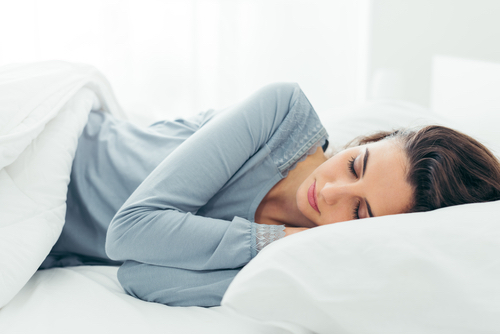


Getting a good night’s sleep may seem impossible for some, but simply improving your sleep hygiene can have a huge effect.
Your morning routine, behaviours throughout the day and your night-time activities can either help or hinder your chance of catching those much needed ZZZs.
Getting a good night’s sleep may seem impossible for some, but simply adjusting your sleep habits can have a huge effect. Your morning routine, behaviours throughout the day and your night-time activities can either help or hinder your chance of catching those much needed ZZZs.
House Call Doctor Clinical Director Dr Ryan Harvey says getting a good night’s sleep is more important than we may think.
“Sleep is the best self-care practice you can easily adapt into your everyday life,” Dr Harvey said.
Firstly, what is sleep hygiene?
Sleep hygiene relates to healthy habits that encourage better sleep, and quality rest leaves you more alert and energetic throughout the day. Dr Harvey says good sleep hygiene promotes a range of health and wellbeing benefits.
“Sleep lets our brain cement the new information we’re taking in for a better recall later on,” Dr Harvey said.
“Insufficient sleep can affect your body and mind – and side effects can mimic those of chronic fatigue. They can include exhaustion and memory loss.”
Getting a good night’s sleep can also help you maintain a healthy weight, strengthen your immune system, lower your risk of serious health conditions, and can benefit your mental health.
How to improve the quality of your sleep?
Here are some of Dr Harvey’s top tips.
Maintain a regular sleep pattern
Try to keep a regular sleep schedule, which means waking up and going to bed at the same time every day (give or take 20 minutes). This will train your internal body clock to expect to sleep at a certain time each day. However, if you don’t have a good sleep, try to avoid ‘sleeping in’ or napping during the day as this will reinforce bad habits.
Separate your bed from activities other than sleep
Your bed should be for sleeping, not entertainment. Avoid watching TV or scrolling through your phone while in bed, as this will teach your brain to stay awake instead of sleep. Try other relaxing activities before you go to sleep such as reading or listening to music.
Improve your sleeping environment
Your sleeping environment can make or break a good night’s sleep. Think about the temperature, light, and any background noise. Consider investing in a good mattress that suits your needs.
Create a night-time routine
Ensure your night-time routine is relaxing and calming, so your body recognises bedtime is approaching. Here are some things you may include in your night-time routine:
- Warm bath or shower
- Reading
- Listening to music or a podcast
- Sleep music or calming nature sounds
- Meditating.
Stay clear of stimulants before bed
Food and beverages that contain caffeine such as coffee, tea, soft drink and chocolate can hinder your night’s sleep. Citrus fruits, spicy food, fatty or fried food and heavy meals can cause indigestion and can also prevent you from getting a good night’s sleep.
Be mindful of other stimulants that can be detrimental to your sleep. Dr Harvey says that “certain medications may interfere with your sleep cycles, so it’s important to consult with your regular GP for personalised medical advice.”
Change your day-time routine
Exercising throughout the day can help improve your sleep quality, however, try to avoid strenuous workouts close to when you go to bed. Controlling your stress and anxiety throughout the day can also help you switch your mind off when it comes to bedtime.




